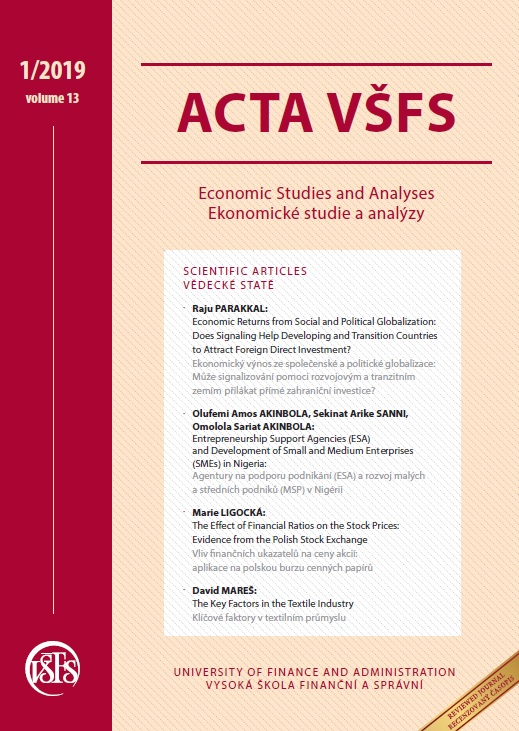Economic Returns from Social and Political Globalization: Does Signaling Help Developing and Transition Countries to Attract Foreign Direct Investment?
Economic Returns from Social and Political Globalization: Does Signaling Help Developing and Transition Countries to Attract Foreign Direct Investment?
Author(s): Raju ParakkalSubject(s): Economy, Supranational / Global Economy
Published by: Vysoká škola finanční a správní, a.s.
Keywords: foreign direct investment (FDI); political globalization; social globalization; signaling theory; developing countries; transition countries
Summary/Abstract: I examine whether a developing or transition country’s political and social engagement in the international system – labeled as a country’s political and social globalization – has a positive influence on its ability to attract foreign direct investments (FDI), and hence, on the amount of FDI that it receives. My research is motivated by insights from signaling theory, which posits that actors provide information about themselves through signals in situations where the underlying quality or nature of such actors is less than perfectly discernible. A high degree of political and social globalization can potentially serve as a positive signal to foreign investors that a country is “invested” in the international system, global society, and in the larger global political economy, thereby lowering the perceived risk of investing in this country. As part of the empirical analysis, I undertake multivariate regressions using panel data on more than 100 developing and transition countries. The results show that both political and social globalization lower the perceived country risk in terms of attracting FDI. While social globalization helps attract FDI through both strategic and non-strategic signaling, the same is true for political globalization only with strategic signaling and not with non-strategic signaling. Given the importance of FDI to growth and development, the findings of this study can particularly inform policymakers in developing and transition countries.
Journal: Acta VŠFS - ekonomické studie a analýzy
- Issue Year: 13/2019
- Issue No: 1
- Page Range: 8-28
- Page Count: 21
- Language: English

